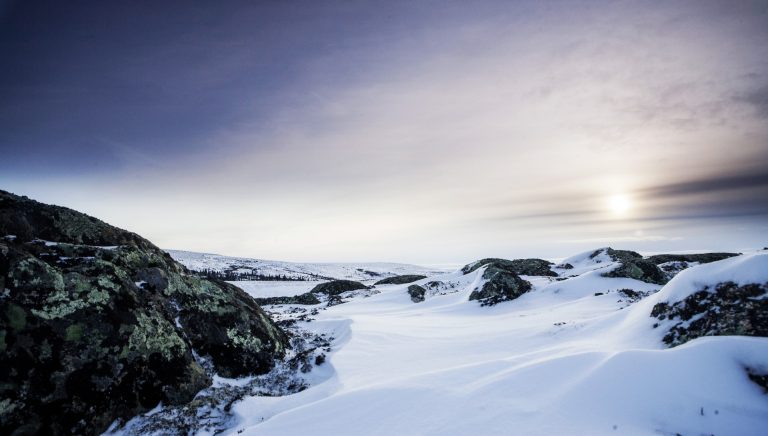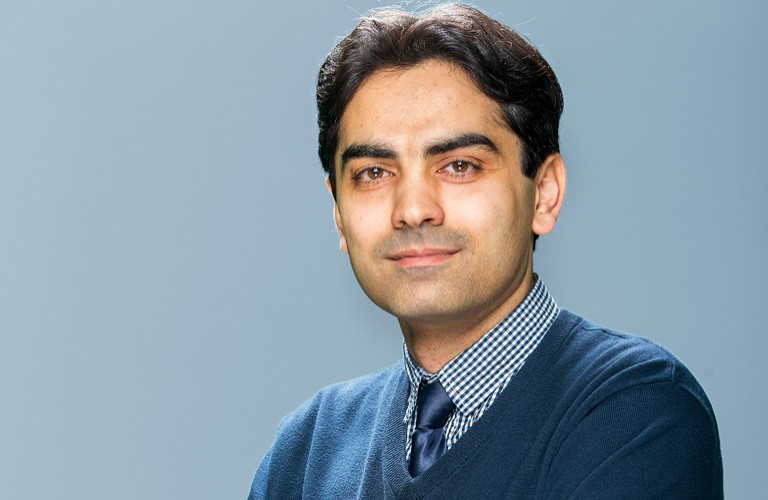Concordia partnership explores geothermal possibilities in northern Quebec

Concordia’s Sustainable Energy and Infrastructure Systems Engineering (SEISE) lab has partnered with an independent Quebec-based engineering consulting firm to spearhead a new project in some of the country’s most remote northern communities.
Together, SEISE and BBA Inc. aim to unlock the potential of geothermal energy for residents of the Nunavik region of Quebec, the vast majority of whom are Inuit.
The lab’s team is led by Fuzhan Nasiri, assistant professor in the Department of Building, Civil, and Environmental Engineering. The researchers are currently hard at work identifying the technical and economic feasibility of geothermal systems in the northern Quebec region.
Their focus is on different aspects of implementation, from well depth to permafrost stability.
“Energy security and resilience is a day-to-day challenge for remote northern communities that are off-grid,” says Nasiri. The areas having no connection to the national electricity grid or natural gas pipelines, thus making diesel shipped from the south their dominant fuel means for both electricity and heat.
“Geothermal energy is a local source that could enhance the self-sufficiency of these communities while offsetting carbon emissions by reducing the use of diesel.”
 Fuzhan Nasiri, assistant professor in the Department of Building, Civil, and Environmental Engineering.
Fuzhan Nasiri, assistant professor in the Department of Building, Civil, and Environmental Engineering.
A clean and lasting energy source
Geothermal energy refers to heat generated by, and stored in, the earth. It requires no combustion or burning of fuels, making it both a renewable and lasting source of energy.
Its resources include the hot water and rock that are found a few miles below the Earth’s crust, as well as the magma below that; this heat can be tapped to generate electricity.
“Geothermal resources are some of the most reliable and environmentally friendly options for district heating systems,” says project researcher Arash Yazdizad, an MSc student in building engineering. Yazdizad explains that SEISE and BBA hope to integrate geothermal technologies into the existing district heating systems in Nunavik to ensure better cost-efficiency and control.
Masoud Rezaei, a civil engineering PhD student, is also one of the project’s primary researchers. He joined the initiative because it aligned with his thesis on hybrid renewable energies for sustainable societies, especially remote communities.
“Geothermal is one of those renewables that can play such a significant role in any household’s energy basket,” says Rezaei.
“Working on methods and ways to decrease the dependence on fossil fuels and increase the role of clean resources is always a valuable and interesting subject matter for engineers. Nunavik is highly dependent on diesel as the energy resource, and we are actively trying to lower this dependency.”
Bolstering northern communities
The project, funded by the Natural Sciences and Engineering Research Council of Canada in alignment with Institut Nordique du Québec initiatives, is expected to fulfill its deliverable requirements by August.
“The reliability, service continuity and maintenance profile of geothermal facilities are of particular importance for remote communities in northern Canada. Extreme weather conditions and a lack of permanent means of transportation to major cities limit access to maintenance services,” Nasiri explains.
“The project is exciting from both societal and technological perspectives as it aims to improve the resilience of northern communities while addressing the peculiar technological challenges of geothermal exploration in the region.”
Find out more about Concordia’s Department of Building, Civil and Environmental Engineering.


